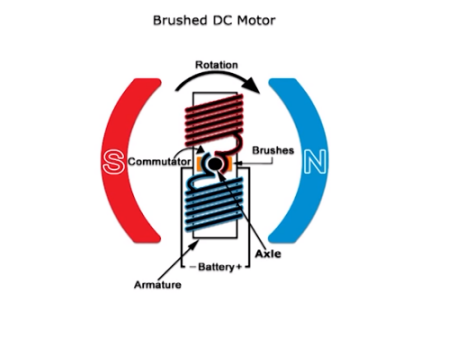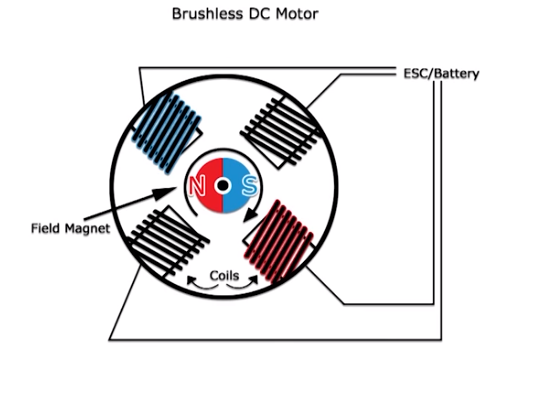|
Brushed vs Brushless RC Motors(2) (Hint: One is WAY Faster)Brushed vs Brushless RC Motors(2--Hint: One is WAY Faster) How do these two types of motors work and what is the difference? Brushed(DC motor's Pros & Cons)
The Pros of Brushed Motors One of the advantages of brushed motors is they are fairly simple and reliable. They provide a basic two-wire control. This makes it ideal for entry-level cars and new users. Even with their simplistic control, this type of RC motor gives more power for tight, tactical driving. This means that it is easier for brushed RC cars to maneuver through rough terrains compared to RC cars with brushless motors because they have less or minor external components. In addition to their simplistic control, brushed motors are also great for beginners because the prices of brushed motors are far more affordable when compared to brushless motors. The Cons of Brushed Motors The main disadvantage of brushed motors is their low power efficiency. In general, the efficiency level of a brushed motor is between 75% and 80%. This is lower than brushless motors which have an 85% to 90% efficiency level. The brush design explains this reduced power level. The mechanical limitation of the brushes causes the motor to offer lower speed range than the brushless. To add to that, there is a lot of electrical and electromagnetic noise due to the constant switch of the commutator, brushes and shafts. Due to the perpetual contact of the elements inside the motors, heat loss is high and the rotational force is less. Another negative of brushed motors is that the brushes can wear out after a while, so periodic repairs and replacements are necessary. This is minor in the overall scheme of things, but it is something to consider. Brushless Motors (BLS Motor's Pros & Cons)
The Pros of Brushless Motors While brushed motors tend to deteriorate quicker and not last as long, brushless motors are quite the opposite. Brushless motors have a longer lifespan since there are no brushes inside the motors to wear out. Therefore, you can expect less maintenance, less problems, and less cash to fork over in the long run. There are no brushes to clean or to replace in a brushless motor. The only thing that you might need to do is to maintain the bearing. This just requires a periodic lubrication to keep it in check. The best part of a brushless motor is that they typically can run for five to six years without any problems whatsoever. When we compared the weight of the motors, this type of electric motor is relatively smaller and lighter. It does not put a burden on your vehicle, so you can improve your speed and handling capability quite significantly. Furthermore, a brushless motor provides more power and longer run times than an equivalent-size brushed motor. This is because there is no mechanical brush limitation on this type of motor. Brushless motors are also known to be able to deliver higher torque at variable speeds. In regards to the efficiency aspect, brushless motors have low electric noise. The heat loss is also very low, which translates to a higher movement for the same amount of electric that you feed to the brushed motor. The Cons of Brushless Motors Price wise, brushless motors are flat out more expensive. This is due to the complex control and the use of the ESC (electric speed controller). Despite being pricey, we believe that brushless motors provide a much longer-term value for your money because they requires fewer repairs and replacements over the years. The only other disadvantage of brushless motors is that they offer less load speed control. It makes driving on a rough terrain a bit difficult and challenging compared to the brushed motor. Thanks for reading, hope you would like DEKO SERVO~ Enjoy your RC moment!! |



